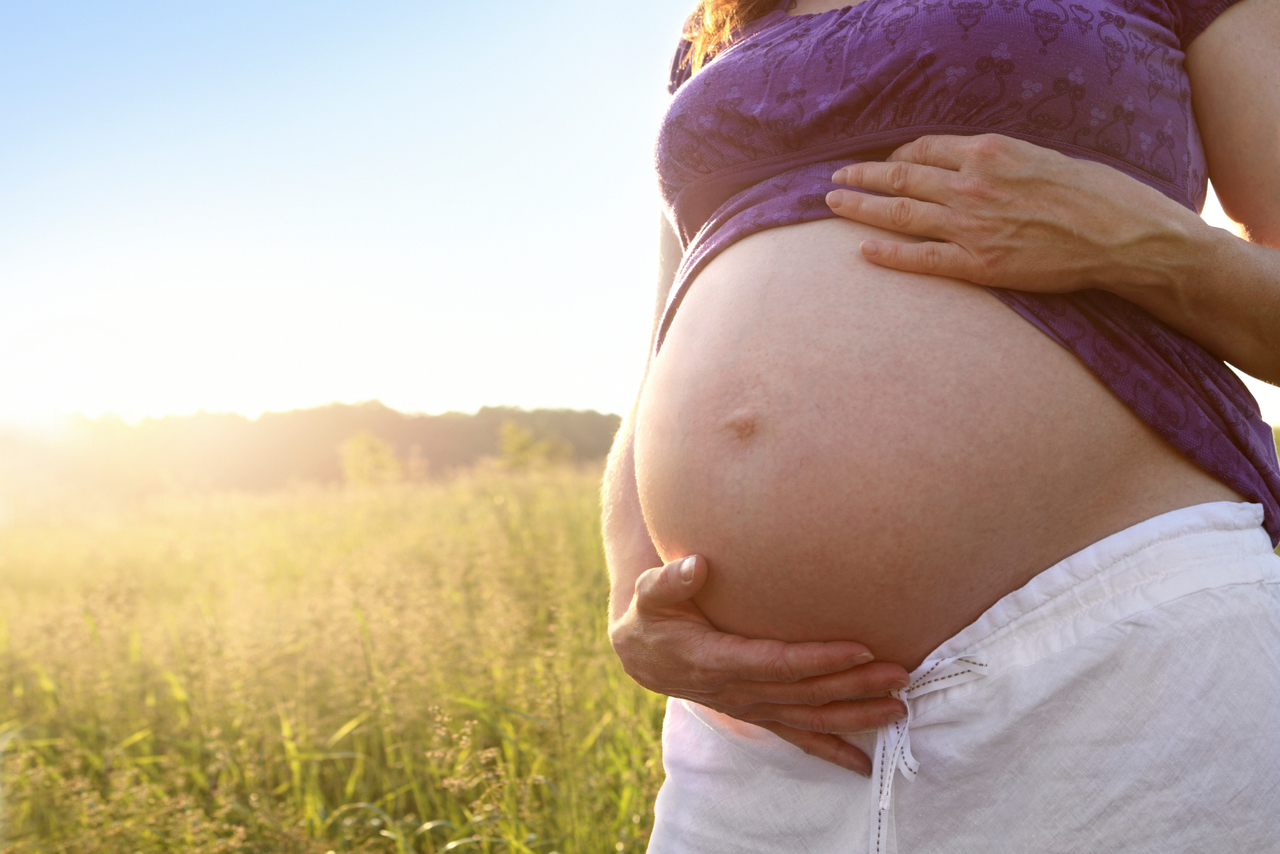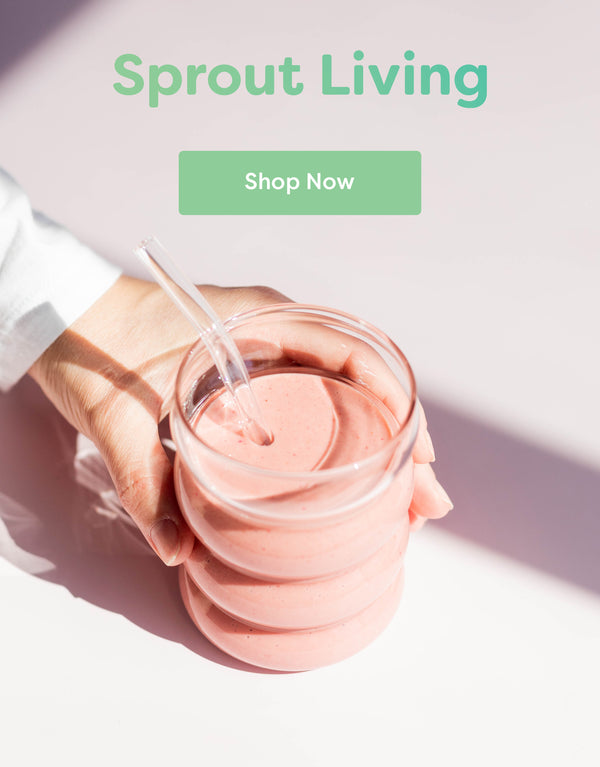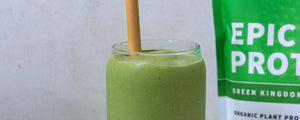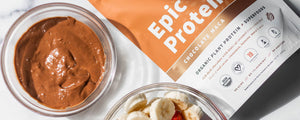
Is Raw Protein Safe During Pregnancy?
Because pregnancy increases the daily recommended value of protein, most women have to find ways to increase their daily protein intake. For those on raw and raw vegan diets, this can be easier said than done! But is raw protein safe during pregnancy? Many people ask this question of raw vegans, but whether or not consuming exclusively raw protein during pregnancy is healthy for you and your baby is dependent on many factors. These include food sources, as well as vitamin A and fat intake. While adjusting your raw diet to be suitable for two can be difficult, with commitment there are safe and healthy ways to make a raw diet work during pregnancy! Not only that, but switching to raw food and protein sources could be your healthiest option.
How much protein do pregnant women need?
Generally, 46g of protein per day is the average recommendation for women (though a more specific number can be calculated based on weight and diet). Pregnant women are said to need 10g more protein per day than they were getting before pregnancy, whereas women who are breastfeeding need 20g more. This is a walk in the park for some but can be difficult for those who are on restrictive diets, such as vegetarians, vegans and raw dieters. Vegans have been shown to typically obtain 10-12% of their calories from protein, while a non-vegetarian obtains about 14-18%. While 10% of calories from protein is actually about the recommended amount for vegans, this is not consistent during pregnancy. Pregnant women are recommended to get between 20-25% of their calories from protein, significantly higher than the 10% average of non-pregnant vegans. It’s also important to note that meat eaters usually don’t need to seek out protein sources, while non-meat eaters generally go out of their way to get more. Raw vegans are faced with even more restriction, and are therefore likely to have an even lower percentage of calories from protein or must work harder to keep the percentage up. While non-vegan raw dieters may not have as much issue getting protein than a raw vegan, there are also health risks with many raw animal-based products such as raw meat and dairy.What raw protein sources are suitable during pregnancy?
While 20-25% of calories should be consumed through protein during pregnancy; this does not actually reflect how much of the protein is actually absorbed, however, and the relativity of these numbers is incredibly important to consider. For example, protein from animals and animal byproducts are often complete yet more difficult to digest. Chicken can provide significant protein but cannot be consumed raw and may have cancer promoting properties when grilled at high temperatures. Dairy can be a rich source of protein, but the proteins in milk are allergenic and can be especially unhealthy for children. Also, in order for milk to be considered raw it must be unpasteurized, and unpasteurized dairy is considered off-limits to pregnant women. In contrast, those that eat mostly raw vegetable products usually experience far less issues with digestion and therefore absorb and use more nutrients and protein, even if the food source has less protein than a denser, harder to digest source. If anything, consuming raw protein is a great way to ensure that the protein is actually being absorbed into the body, nourishing both you and your growing child.Risks of Raw Diets During Pregnancy
One major reason that raw diets and raw protein is seen as an unhealthy option for pregnant mothers is because of the low-fat nature of the diet. Generally, raw dieters consume very little fat, which is usually seen as a very healthy aspect of the diet. During pregnancy especially, this is a serious misconception! Diets that are low in fat are typically also very low in vitamin A, due to retinol (one of two forms of vitamin A) only being available from fatty animal sources. Carotenoids make up the vitamin A in plants, and while the function is the same it is less concentrated and in fewer sources. An important thing to remember about vitamin A is that we need it in order to break down proteins for our bodies to absorb. This means that, without a healthy amount of vitamin A, ingesting your daily intake of protein becomes less effective. Not only that, but if you are striving for a high protein diet, such as during pregnancy, the recipe for disaster is doubled; high levels of protein on a low-fat diet doesn't just make protein difficult to absorb, but will also quickly deplete the body of all vitamin A -- which can lead to vitamin A deficiency. Vitamin A plays a huge role in several areas, such as vision, skin and cellular health, antioxidant activity and, most importantly for your developing child, healthy immune function. Vitamin A deficiency will reduce the body's ability to fight infections, which is incredibly dangerous for an unborn-child that will soon be exposed to new (and often harmful) substances in the air. Vitamin A is also necessary for gene expression and the prevention of many birth defects and complications, such as respiratory diseases and immunodeficiencies. For pregnant women, not getting enough vitamin A is especially harmful; along with complications during pregnancy and lactation, studies have shown that pregnant women with vitamin A deficiencies are more likely to develop night blindness and are even at higher risk of maternal death. While this is very uncommon in developed countries, those that are already at risk for low levels of vitamin A should be cautious -- especially raw dieters, vegans and vegetarians who have low-fat diets.When considering sources to increase vitamin A intake for a raw diet, always try to go for whole food sources before looking at supplements. Many vitamin A supplements, such as prenatal vitamins, are synthetic or unable to convert to true vitamin A within the body. Rich, raw plant sources of vitamin A are carrots, sweet potatoes, kale and spinach, though none of these have anything in the way of fat to offer. While it seems that vitamin A is simply most commonly found amongst fatty meat sources, it also needs fat in order to make its course through the body. One of the reasons that eggs, meat and dairy are great sources of protein is because of the vitamin A-rich fat that is provided with it, which helps the body use the protein that’s being consumed. However, raw protein sources and supplements are usually very low in fat if not fat-free. Protein needs vitamin A, vitamin A needs fat and the body needs all three, so be sure to balance your diet if you want to stay raw while also doing everything necessary to keep your child healthy. While this may sound difficult, doing this shouldn’t be so different if you’re already comfortably maintaining a healthy raw diet. Almonds and pecans are both rich in protein and high in fat content, so eating these along with vitamin A plant sources can give you everything you need to keep essential nutrients working properly in your body.
Don’t Overcompensate
Like with protein, it’s also very important to make sure you don’t get too much vitamin A as well. While vegans and raw vegans have little to nothing to worry about on this front, too much vitamin A can cause birth defects and complications just like vitamin A deficiency can. Cleft lip, cleft palate and heart malformations are all more likely defects amongst children whose mothers consumed too much vitamin A during pregnancy. The recommended amount of vitamin A for pregnant women aged 19 and up is 2,565 IU (international units), and just 3 ounces of cooked beef liver (one of the richest vitamin A sources) contains 27,185 IU. An average meat eating American gets plenty of vitamin A, and in some cases likely gets more than necessary. However, this restriction mostly only applies to retinol, which is only found in animal products and byproducts. Carotenoids, the vitamin A from fruits and vegetables, are free to be consumed as much as you like. While getting vitamin A may be a bit of a struggle for vegans and raw vegans, these diets also allow room for more control over the amounts of vitamin A you’re consuming.Raw Protein Powders and Pregnancy
If you’re eating the right raw vegetables, nuts, legumes and fruit, meeting the necessary nutritional demands is more than possible for raw living moms-to-be. However, many followers of vegan and raw diets already have to seek protein supplements to meet their daily requirement, and with the increased requirement during pregnancy it’s no wonder why staying raw while pregnant can be an issue. All-natural plant-based protein powders are considered safe during pregnancy and can be an invaluable addition to your diet if you’re having trouble meeting your needs. Many people proclaim that protein powders are unhealthy and downright dangerous to consume when pregnant, and in many cases they aren’t wrong. Protein powders can have a bad reputation because of more popular brands that have several additives and are specifically designed to build bulk muscle. However, there are many 100% plant-derived protein powders that are just as safe to consume as the plants themselves. While soy and whey protein powders should absolutely be avoided as they are high in allergens and more difficult to digest, raw plant-based powders are perfectly safe as long as the daily requirement for protein isn’t exceeded. Raw protein powder, such as sprouted brown rice protein powder, is a safe and effective way to add extra protein to your diet. In high quality products, such as Epic Protein : Original, the only ingredient present is sprouted whole grain brown rice, meaning there’s absolutely nothing dangerous about consuming this completely raw, hypoallergenic, plant based protein powder as long as you’re not consuming too much of it (which goes for any protein source). However, relying primarily on supplements is not a great way to take in your nutrients, especially when eating for two. Whole food sources should be emphasized as they are well-rounded and healthier, though incorporating a raw protein powder is the perfect way to raise the numbers. Just be sure not to overcompensate on your quest for protein; getting too much is unhealthy as well and can cause nausea, raised cholesterol and reduced liver and brain function.Deciding if a Raw Diet is Safe For You During Pregnancy
Is seeking exclusively raw and plant-based protein unsafe for pregnant women? If done properly, no. In fact, it could be the healthiest option! However, maintaining motivation and diet can be very tedious and therefore very difficult to execute for someone who is trying to go raw for the first time during pregnancy. Keep in mind, there are several factors in keeping you and your baby healthy when pregnant, and diet is only one of them (though arguably the most important). Even if going raw sounds like the healthier option to you now that you have a little one to think of, switching suddenly during pregnancy will likely cause serious stress on your mind and body which can negatively affect you in other ways, such as raising blood sugar levels. Instead of switching to a raw diet, try supplementing your extra protein intake with raw protein powders or extra vegetables. Likewise, if you’ve been following a raw diet for years but feel it would be better for your child to switch to a vegetarian or even a meat-eating diet, consider the negative repercussions of consuming animal products and byproducts after not having digested them in ages; even a person who eats poultry and fish regularly can have horrible digestion problems after eating a couple bites of red meat for the first time in several years. And considering humans already have trouble digesting dairy products (even those who are far from lactose intolerant), many people have an issue when switching back to dairy after being vegan or raw vegan for some time. While you will need to alter your diet during pregnancy regardless of what your dietary restrictions are, it’s also important that you don’t change your habits to the point of making you sick, agitated, stressed or depressed, which are all potential side effects of serious diet change. This concept is similar to the much-debated topic of caffeine during pregnancy; while caffeine is strongly discouraged for pregnant women, doctors will often instruct their patients to have a little caffeine a day if they’re used to having it frequently. Everyone knows what kind of stress skipping your morning or mid-afternoon coffee can generate, and this stress may even be more detrimental to the baby’s health than the caffeine. Your child is connected to you in more ways than simply gaining nutrients from your food, and your stress will inevitably pass to him or her. High levels of stress can cause complications during and possibly even after pregnancy, causing premature birth and maybe even learning or personality disorders. So if you’re raw, stay raw! If not, try seeking raw sources of protein to integrate into your diet. While keeping everything regulated can be a time-consuming pain, the reward of having a healthy, happy pregnancy will be well worth the effort.- https://www.vrg.org/nutrition/protein.php
- https://www.vrg.org/nutrition/veganpregnancy.php
- https://www.ucsfhealth.org/education/eating_right_before_and_during_pregnancy/
- https://www.webmd.com/diet/healthy-kitchen-11/how-much-protein
- https://www.esquire.com/features/steak/vegetarian-0908
- https://www.healthyvitaminsrx.com/html/low-fat-diets-and-vitamin-a.html
- https://lpi.oregonstate.edu/infocenter/vitamins/vitaminA/






